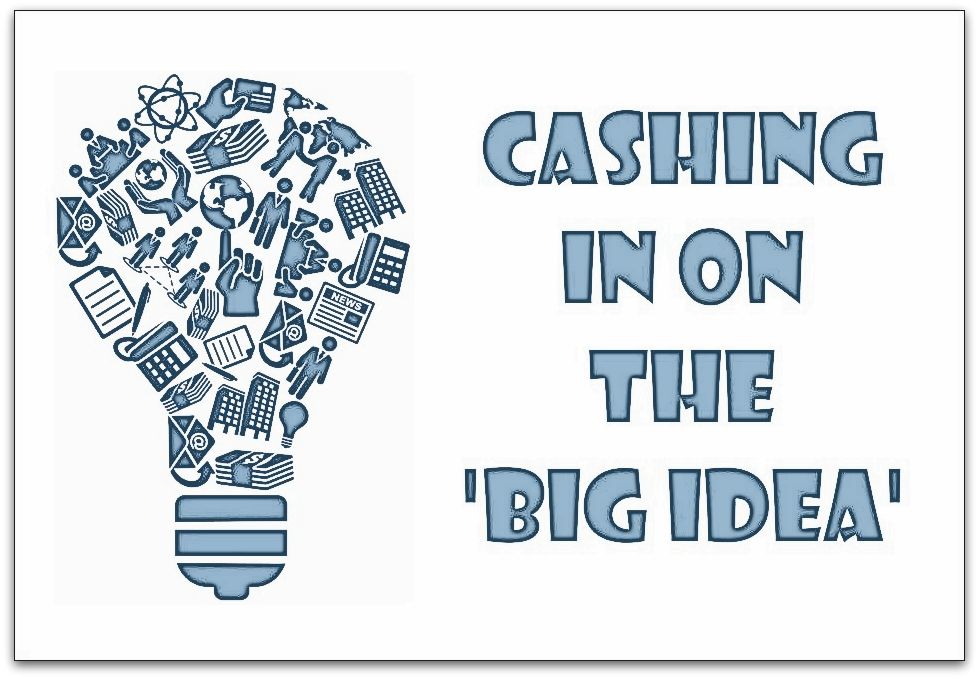In the world of advertising, traditionally the focus has always been on – “big ideas”. And brands cashed in on their unique “big ideas”. Like brand Amul had the Amul girl, the Onida devil, Marlboro had the Marlboro man, Apple reminded us to “Think Different,” and there’s “open happiness” with Coca-Cola, while it was “Youngistaan” for Pepsi. Now, we are exposed to the Flipkart adult-child sequences and it’s a “Selfiestaan” that Gionee promises. But, across evolving timelines, the role and perceived importance of the “big idea” is changing.
You find entrepreneurs also kicking off with an “idea”. Steve Jobs started off his Mac storyline in his garage. Airbnb founder and CEO Brian Chesky started his company, in the modest setting of a friend’s apartment. “People have said it’s the worst idea that ever worked,” Chesky recalled and pointed out – “It wasn’t supposed to be the big idea – it was supposed to be a way to pay the rent, while we thought up the big idea.” It was indeed, a flash of genius.
At this point, I recall the movie – ‘Flash of Genius’, where the man with the idea is – Robert Kearns, who strongly believes in his idea. And, he takes on the Detroit automakers – Ford. He claims they stole his idea for the intermittent windshield wiper. Based on a true story of a college professor and part-time inventor Robert Kearns’ long battle with the U.S. automobile industry, Flash of Genius records the tale of one man whose fight to receive recognition for his ingenuity came at a heavy price. But, this determined entrepreneur refused to take it lying down, and he took on the corporate titans in a battle that nobody thought he could win. His idea was a flash of genius!
The “Big Idea”
Aspiring entrepreneurs actually believe that in order to get started, they need to have “the big idea”. But it does happen often, that startups, especially the successful ones, end up pursuing businesses that are often significantly different from the initial idea. Sometimes, it happens that startups shape up nothing like the initial idea! One could say that the main value of many initial ideas is often broken, after which people often come up with the real big idea. Businesses are launched with one idea, but end up pursuing other ideas, which may have worked!
Sometimes, it is a fact that many entrepreneurs strike off on their own, because they get tired of the way things work in their previous organizations and they become hell-bent to do things very differently.
Startup risks are involved
Start-ups may travel a long and winding path. It is commonly accepted that, if left to chance, most startups may fail. In fact, taking the entrepreneurial leap has considerable risks. Despite the reality that most startups may fail, it is interesting that just about all entrepreneurs believe that they will be able to play against all odds and succeed with their own ventures. Perhaps this “suspension of disbelief” is a necessary ingredient for the entrepreneurial process.
When the “Big Idea” clicks?
So, what kind of startup is more likely to succeed? Is it when the entrepreneur had “the big idea” or when he leaves the idea and strays into another one? Those entrepreneurs that start companies for escaping from the drudgery of their work-a-day world, seem generally more likely to be satisfied with the outcomes of their startups. Entrepreneurs that pursue the big idea can often become disenchanted when their big idea turns out not to be so big, and not so easy. Another point to note is that entrepreneurs making “the big escape” from the dreary worklife, tend to be more opportunistic and are more ready to tweak their businesses, based on what they learn after they get started.
But, entrepreneurial legends describe the stories of heroes that stuck to their original idea, through thick and thin, to eventually emerge victorious! It’s easy for entrepreneurs to forget the fact that for every founder that stubbornly refused to give up on his or her idea – and succeeded, there are hordes of others, who stuck to their idea far too long, and failed. Many of those that did not succeed could have indeed increased their chances significantly, for they have gained in experience. They are able to “adjust” their game plan, based on what they learned from the market.
Waiting for your “Big Idea”?
So, it is not necessary to wait for “the big idea” to kick off a startup. If you do have “the big idea”, the trick is to arrive at an understanding to persistently pursue that trail. Arguably, there are many more founders that give up on “the big idea” too late, having burnt out all of their resources and energy. Perhaps they need to see things through a critical lens, accept failure and pull out on time, for then they need not run through their funds…










